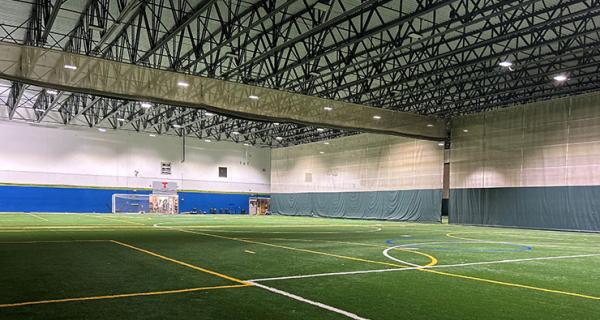9 Keys to Improving the Housing Experience for Sports Events
Having experienced all facets of sports tourism, Mike Hill identifies critical flaws and offers solutions regarding group housing.

Group housing for youth sports events has evolved over the years, adapting to the needs of teams, parents, coaches, and organizers. No one understands this better than Mike Hill, vice president of sales and business development at GroupHousing Travel. After spending over 21 years at Hilton Worldwide, Hill joined a respected housing company this summer. As a parent of athletes who played through college, he has seen every angle of the situation.
Hill observes that the post-Covid era mirrors how travel and events rebounded after the Great Recession. “We’re beginning to witness the melding of vacations and sports travel, similar to about 12-15 years ago,” notes Hill. “Several hotel companies are now pivoting towards sports and entertainment, seeing that general travel hasn’t fully resumed.”
Although the end goal remains constant, the path that event organizers, venues, and families take to reach it differs significantly from how the previous generation navigated major crises.
Trends may vary based on the region, specific sports, and other factors. Connect Sports delved into these with Hill. Here, we present his insights on group housing for youth sports:
1. Proximity to Venue: Hotels near the event venue remain crucial. “The venue drives everything,” Hill emphasizes. Fatal Flaw: Only offering remote or subpar housing, leading to transportation challenges for attendees.
2. Real-Time Information: Modern technology enables teams and parents to effortlessly locate and reserve accommodations. However, some issues persist, many of which can be mitigated. “Certain housing companies lack real-time technology, leaving them blind to current housing situations,” Hill cautions. Fatal Flaw: Showing inaccurate room availability, causing overbookings or last-minute cancellations.
3. Increased Parent Involvement: Parents aren’t merely financing their children’s sports or being passive observers. As “playcations” (family trips centered on sports) become popular, hotels need to match the service levels adults expect during business travels. “Parents anticipate the same standard of service during family weekends,” Hill states. Fatal Flaw: Using Covid as an excuse for on-site customer service issues. Hill asserts, “We’ve moved beyond Covid and should be past staffing problems.”
4. Cost Options: Covid's lingering impact is evident in high hotel rates. Some are willing to pay more for superior accommodations, while others can’t. “While some lean towards budget-friendly options, others seek luxury. Striking a balance is crucial,” advises Hill. Fatal Flaw: Offering limited choices or mandating excessively high prices.
5. Short Booking Windows: Postponed or canceled events have resulted in hotel backlogs. Sports organizers, once used to finalizing contracts years in advance, now may only have six months. “Bookings are typically within a year now. This is true across industries,” Hill points out. Fatal Flaw: Not sharing market challenges with parents, who could be more forgiving if informed.
6. Amenities and Entertainment: Coastal and mountain resort towns center on family activities. City locales offer varied, sometimes dispersed options. Here, brands with built-in amenities like pools or basketball courts can be invaluable. “Event planners must know their chosen market,” Hill suggests. Incorporating a location map on event apps and websites can guide participants. Fatal Flaw: Assuming a uniform approach works everywhere and not adapting to changing conditions.
7. Stay-to-Play: Platforms like Airbnb and Vrbo are enticing, especially in leisure spots like Myrtle Beach. But Hill's experience affirms that housing everyone together fosters camaraderie and punctuality. This also aids event organizers in tracking data crucial for future planning. Fatal Flaw: Not clarifying the policy, its perks, or any unique offers to attendees.
8. Safety First: Rising concerns over child safety mandate stringent housing measures. These may encompass background checks for adults near children, secure housing access, and constant monitoring—another advantage of stay-to-play. Fatal Flaw: Lodging participants in unsafe areas or spots lacking adequate security.
9. Flexible Cancellation Policies: Given the unpredictability of events (e.g., due to weather), lodgings with lenient cancellation terms are favored. Fatal Flaw: Implementing an inflexible system that doesn’t adjust or charges steep fees for changes.
There's no universal solution to group housing. But transparency is almost universally beneficial. Attendees will have queries about fees, event rules, schedules, etc. Employing a company renowned for excellent customer service enables organizers to concentrate on the sport itself, ensuring consistent communication throughout the journey.
“Customer service is paramount,” Hill concludes.








